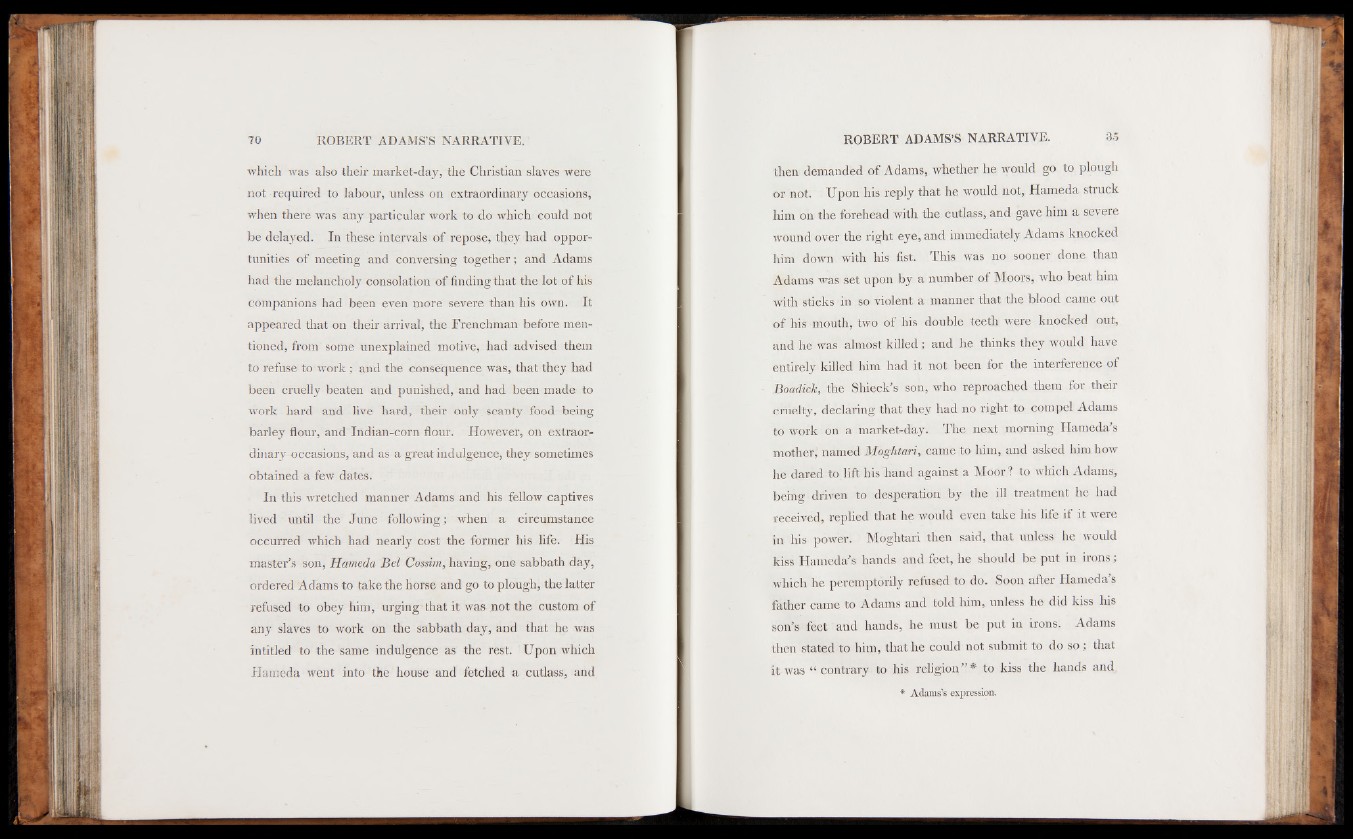
which was also their market-day, the Christian slaves were
not required to labour, unless on extraordinary occasions,
when there was any particular work to do which could not
be delayed. In these intervals of repose, they had opportunities
of meeting and conversing together; and Adams
had the melancholy consolation of finding that the lot of his
companions had been even more severe than his own. It
appeared that on their arrival, the Frenchman before mentioned,
from some unexplained motive, had advised them
to refuse to work; and the consequence was, that they had
been cruelly beaten and punished, and had been made to
work hard and live hard, their only scanty food being
barley flour, and Indian-corn flour. However, on extraordinary
occasions, and as a great indulgence, they sometimes
obtained a few dates.
In this wretched manner Adams and his fellow captives
lived until the June following; when a circumstance
occurred which had nearly cost the former his life. His
master’s son, Hameda Bel Cossim, having, one sabbath day,
ordered Adams to take the horse and go to plough, the latter
refused to obey him, urging ■ that it was not the custom of
any slaves to work on the sabbath day, and that he was
intitled to the same indulgence as the rest. Upon which
Hameda went into the house and fetched a cutlass, and
then demanded of Adams, whether he would go to plough
or not. Upon his reply that he would not, Hameda struck
him on the forehead with the cutlass, and gave him a severe
wound over the right eye, and immediately Adams knocked
him down with his fist. This was no sooner done than
Adams was set upon by a number of Moors, who beat him
with sticks in so violent a manner that the blood came out
of his mouth, two of his double teeth were knocked out,
and he was almost killed ; and he thinks they would have
entirely killed him had it not been for the interference of
Boadick, the Shieck's son, who reproached them for their
cruelty, declaring that they had no right to compel Adams
to work on a market-day. The next morning Hameda’s
mother, named Moghtari, came to him, and asked him how
he dared to lift his hand against a Moor? to which Adams,
being driven to desperation by the ill treatment he had
received, replied that he would even take his life if it were
in his power. Moghtari then said, that unless he would
kiss Hameda’s hands and feet, he should be put in irons;
which he peremptorily refused to do. Soon after Hameda’s
father came to Adams and told him, unless he did kiss his
son’s feet and hands, he must be put in irons. Adams
then stated to him, that he could not submit to do so; that
it was 1 contrary to his religion” * to kiss the hands and
* Adams’s expression.